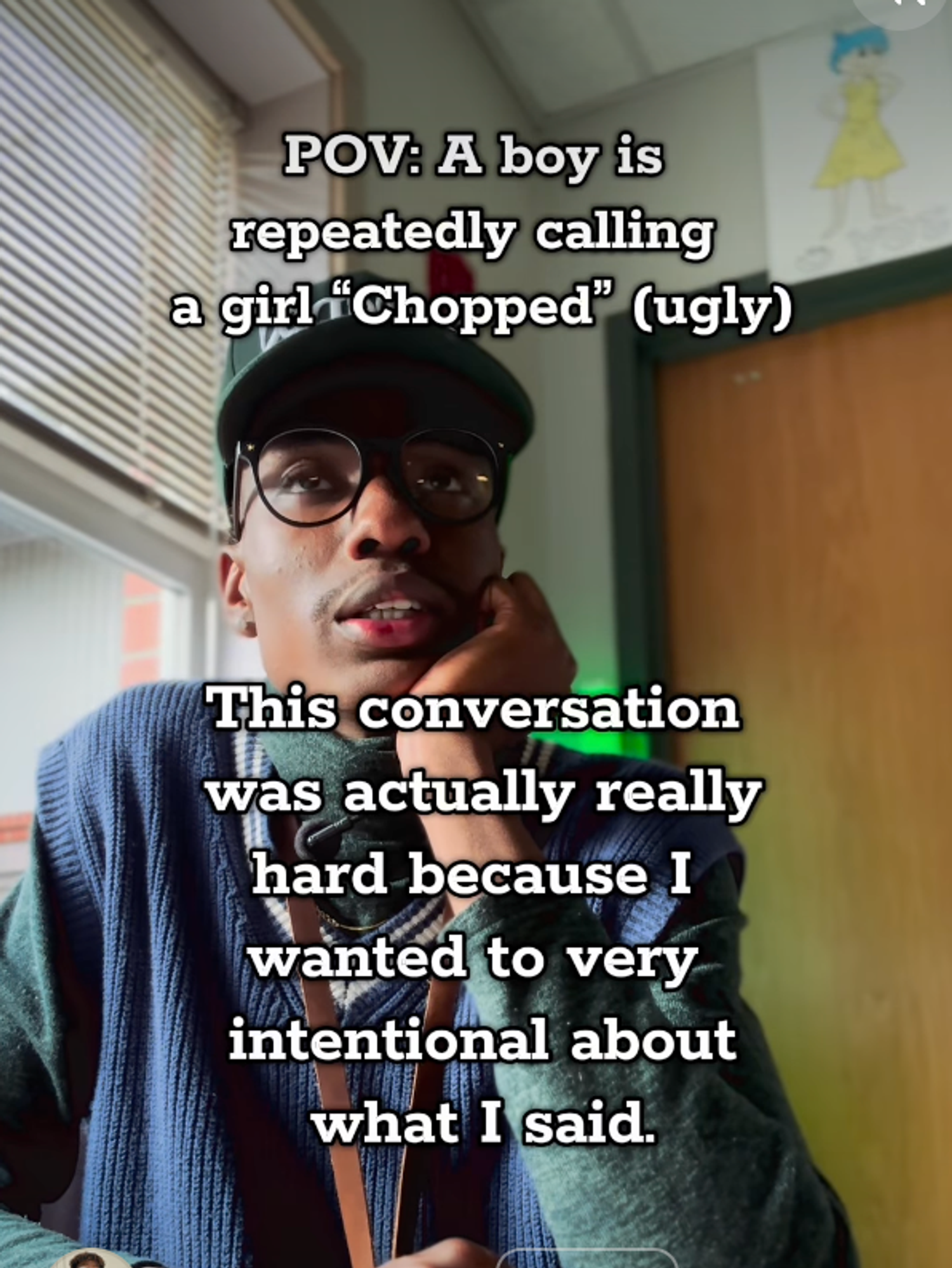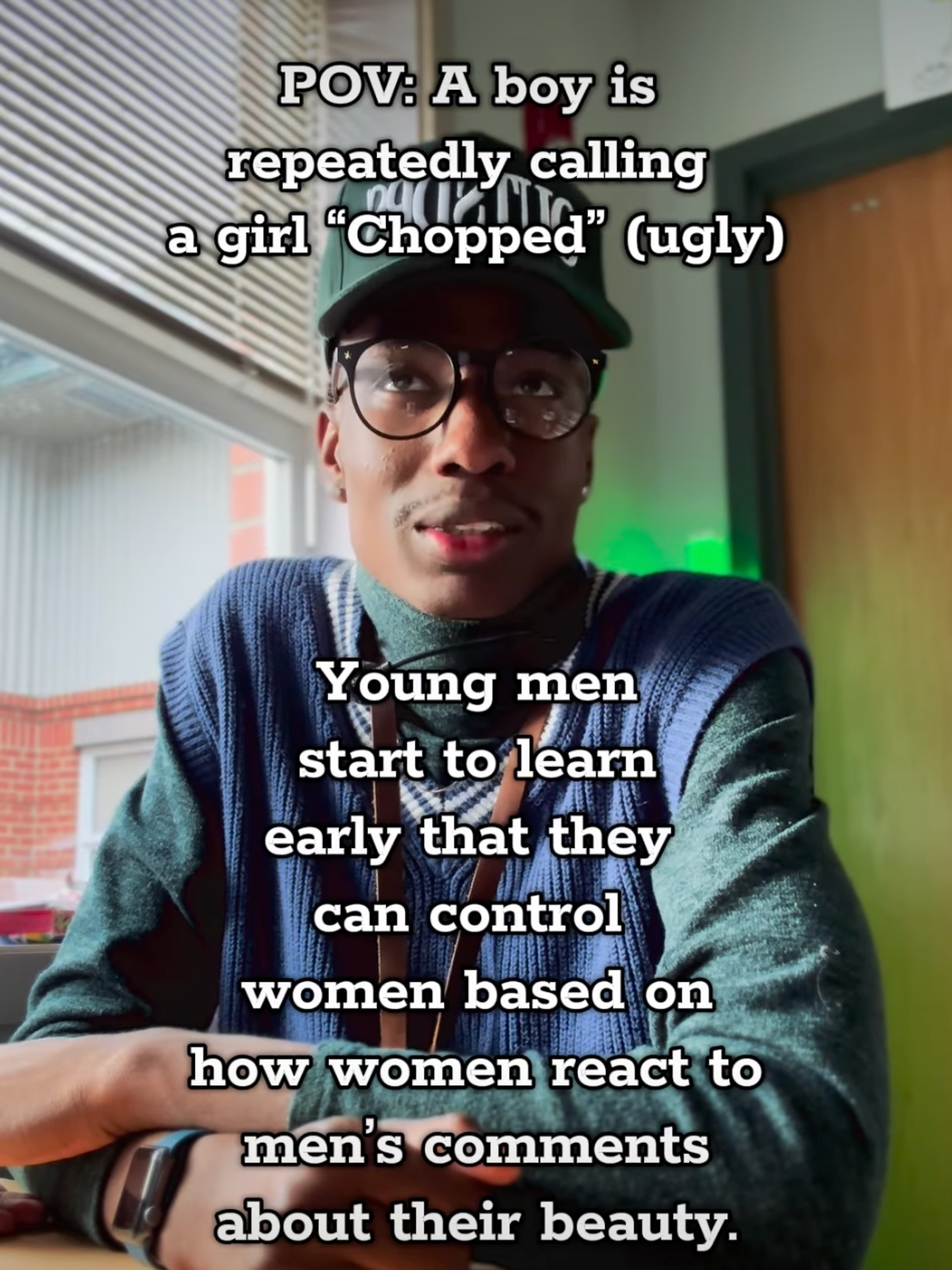Teacher challenges his young student to repeat sexist 'chopped' comment for the best reason
"The reason why you don't wanna repeat it to me is because you know it's wrong.”
A teacher had the best reason to hearing a male student can a female classmate "chopped."
When teacher Jonathan Adriel overheard one of his male students repeatedly calling a female classmate “chopped” (a new term for “ugly”), he immediately knew he had to be very “intentional” about his response. That intentional response became a viral teachable moment for everyone.
In the clip, seemingly filmed right after the incident, Mr. Adriel challenges the young student to “repeat” what he just said. When the boy can’t bring himself to do it Mr. Adriel astutely calls it for what it is.
“You were saying it to her multiple times. You seemed pretty comfortable saying it then. Why don’t you wanna say it now? Because you're afraid to get in trouble? That's a bad reason. You shouldn't wanna say it because it's rude. And the reason why you don't wanna repeat it to me is because you know it's wrong.”

But Adriel doesn’t stop there. He then breaks down exactly why the statement is so problematic.
“If it's not something that you would comfortably come up and repeat to me, then you shouldn't be saying it at all. Do you think I don't know what that means, chopped? I know it means ugly. And why do you feel the need to comment on that? Because do you know that whether someone's ugly or not, that's just an opinion. It's literally just an opinion; it's what you think. And why does that matter? Does that change anything? You saying something about her, does that do anything other than tear her down and hurt her feelings? Or do you think that she would be more important if you perceived her as cute? Do you think that she's any less important because of the way that you think she looks?”
Adirel even gives a brief but impactful history lesson on how prevalent this misogynistic rhetoric is in our history.
“Do you know that there are a lot of men who think that they can tell women if how they look is good or not? And they think that they can have control over girls because of that? Do you wanna be the kind of person that literally tears down a person because you're saying you're commenting on the way they look? So keep it to yourself because it's not okay.”
Adriel’s words drew an overwhelmingly positive response from viewers. But the meaningful aspect of it all seems to be the fact that these important words were coming from a male teacher in the first place.
“As a female teacher who tries to have these conversations with the young men in my classes, thank you. I wish more male teachers were like you. We need you so badly.”
“You did wonderful work having this conversation!🫶🏽🙌🏽the delivery and the time that you took were top tier! This is why male educators of color are so important!”
“As a woman in teaching, THANK YOU!!! we need MORE male teachers having these conversations with male students!!! tip for supporting the little girl who was insulted: i ask my girls “do you care about his opinion on movies? sports? music? no? so you don’t value his opinion on anything? okay, so then you don’t need to value his opinion on your appearance either, right? clearly you don’t trust his judgment in a variety of other fields, so why trust him on this?” this definitely helped when i was a kid.”
“So true! I had to have a conversation with a young man who did something similar in one class today, and I nearly sent him to the principal (who don't play around with that as a man) and it's sad that they only listen to men usually because many aren't shown early on how to respect women. But he didn't want to repeat it to me bc he knew. I'm gonna keep that line you said for future use. Thanks a million! (Sincerely, a woman who was bullied this exact way).”

Children learn through observing the adults in their lives. And blurring gender norms aside, boys generally learn about masculinity by observing the men in their lives. While more and more men are showing their sons that masculinity can contain empathy and respect for women, not every young boy receives this type of education at home. Kudos to the male teachers who step up to the plate.
